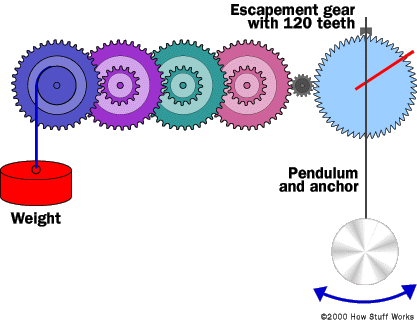Pendulum clocks are pretty neat, especially when compared to digital and analog clocks. Pendulum clocks cut down the amount of time loss. They work differently than other clock types, and have a far more unique look to them.
Galileo was the first to come up with the idea of the pendulum clock, but he died before he finished his invention. It would be a popular creation, for many reasons. These clocks add a uniqueness to any wall they are displayed on.
The History of Pendulum Clocks
The first pendulum clock was created by Christiaan Huygens in 1956, based off of Galileo’s beginning works. Huygens was a Dutch mathematician, among other things. He had the clock patented in 1657.
One of the bonuses of this new technology was that the pendulum clock reduced the amount of time that was lost, from 15 minutes a day to only 15 seconds. One of the biggest issues in the beginning with most clocks was their lost time each day. As new technology came about, clocks became more accurate.
How Pendulum Clocks Work
Pendulums are energy converters that use both potential energy and kinetic energy. Even when the swinging of the pendulum slows it still keeps time, until it stops, of course. Most of these clocks come with a winding key that helps keep the momentum of the pendulum going.
If you were to create your own pendulum clock, or you just wanted to know what makes them tick, here are the basic “ingredients” needed to create a pendulum clock:
- Hands and a dial to show the time
- A weight, which gives the pendulum its potential energy
- Power gears, which keeps the clock going by use of the weight
- The timekeeping gears which move the hands
- A pendulum, as well as the escapement, to regulate the clocks speed
Pendulum clocks use a special motor that allows the pendulum to swing back and forth keeping time. There are a number of websites that offer great information on different pendulum parts and even allow you to purchase items to fix or build your own.
The pendulum clock has a very interesting history and shows how changes have come from the first analog clock to the digital timepieces of today. While not all clocks are created equal, it’s interesting to learn that some clocks that you think would be less accurate are actually more accurate than others. Would you have thought an early pendulum clock would be more accurate than an earlier analog clock?
When buying newer clocks, pendulum or other, technology says that it should be more accurate than the original clocks that sparked their creation. This means that no matter your clock choice now you will likely get something you can rely on.







Recent Comments